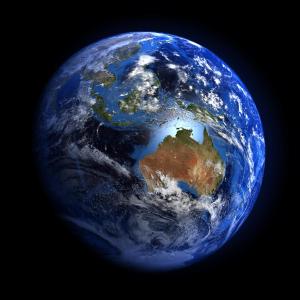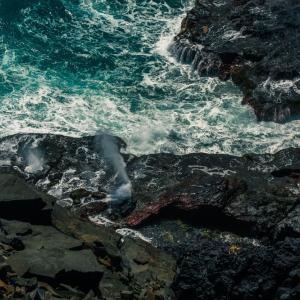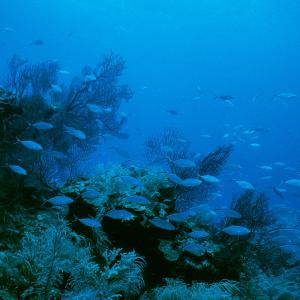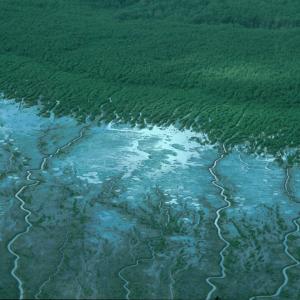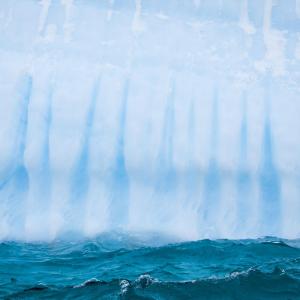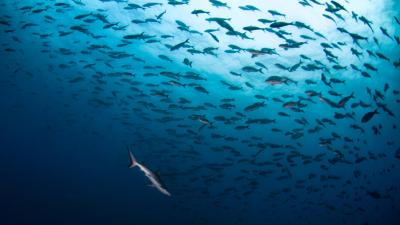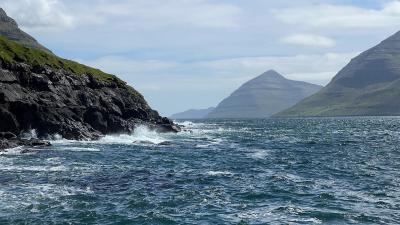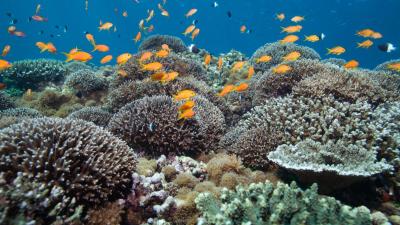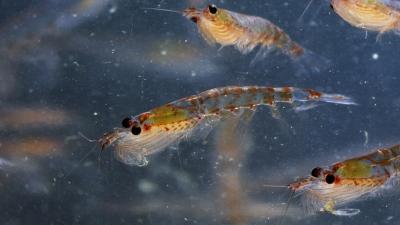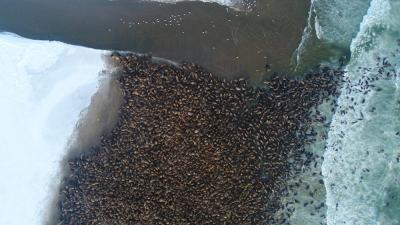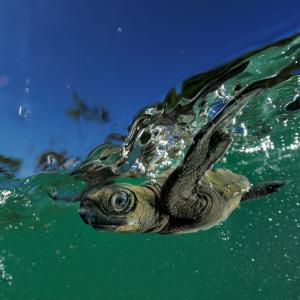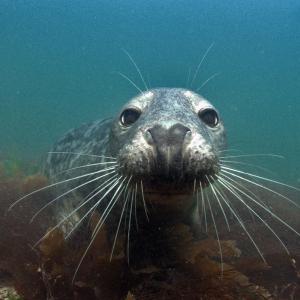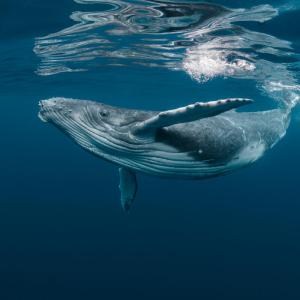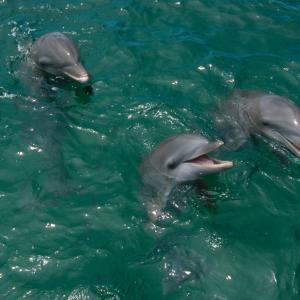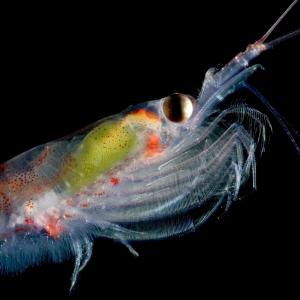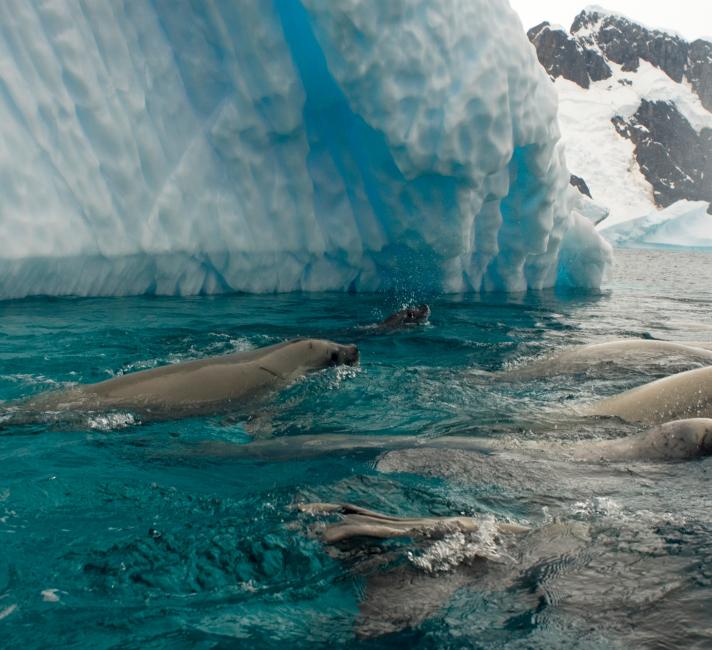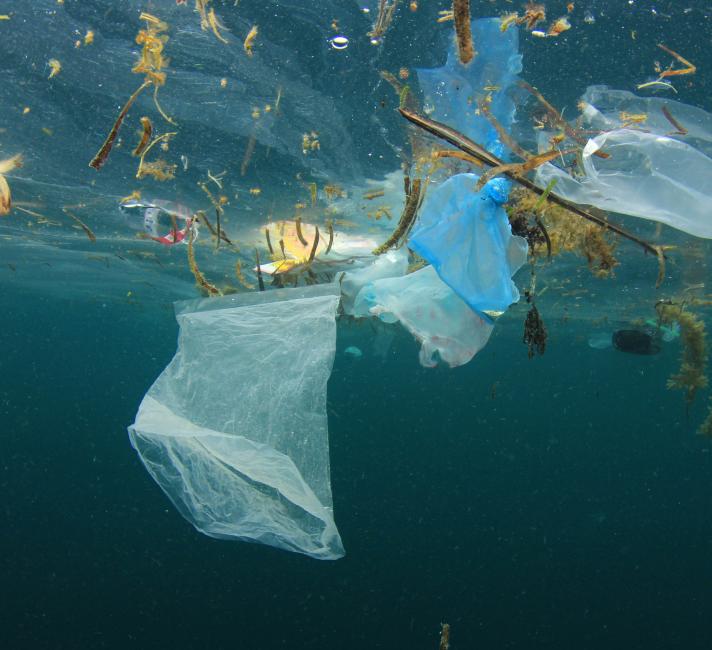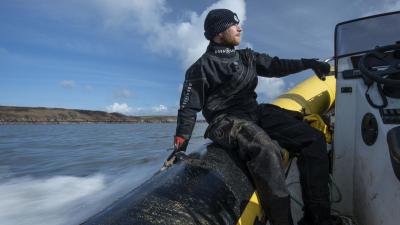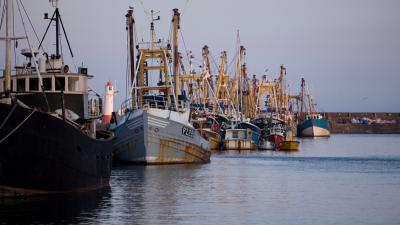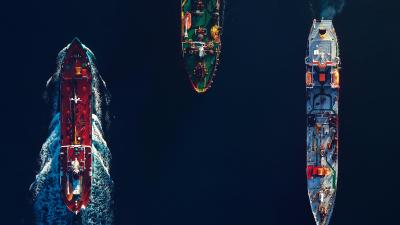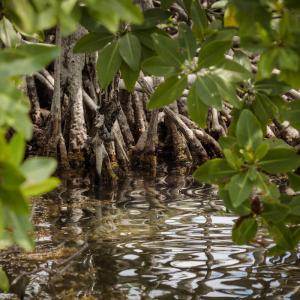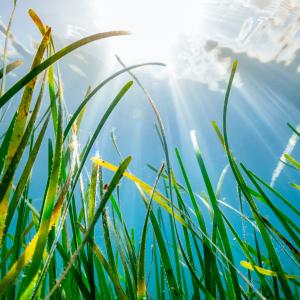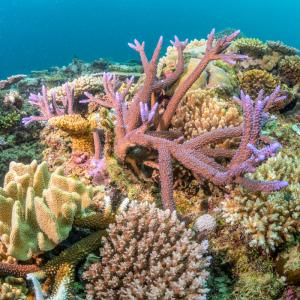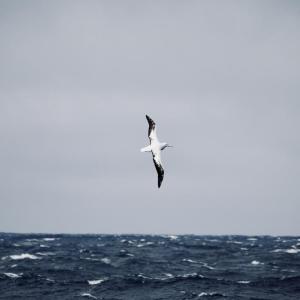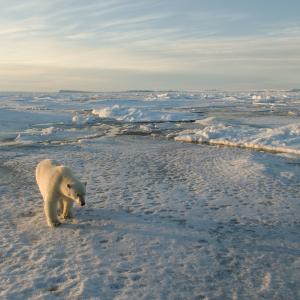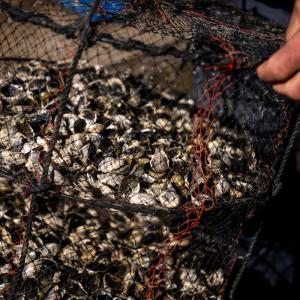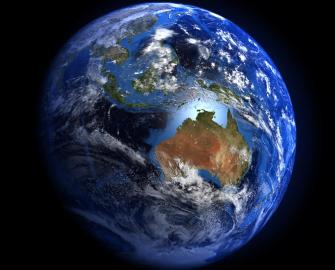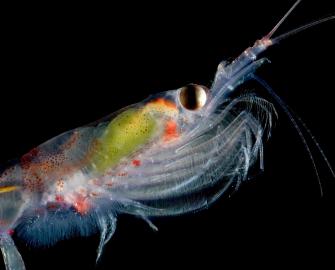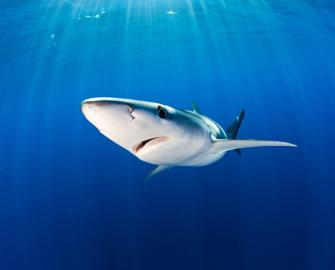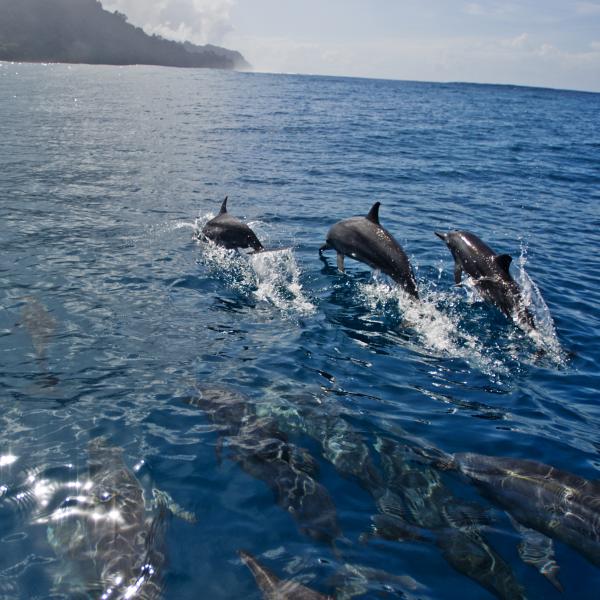
Sound of UK Seas

Why are our oceans so important?
The reason our planet looks blue from space is because so much of it is ocean.
Oceans are vast enough to shape the planet's climate and deep enough to influence geological activity. They're also the final frontier of discovery on Earth.
Life on earth started in the oceans. And there are so many reasons why we need to keep our oceans healthy. As well as being home to amazing wildlife, our oceans provide food for billions of people and income for millions.
The world's oceans produce over half of global oxygen (thanks to algae (seaweeds) and phytoplankton - tiny single-celled ocean plants). Not to mention absorbing half of all man-made climate-warming carbon dioxide, and an astonishing 90% of the excess heat generated by climate change - making it our largest climate buffer by far.[10]
What's the impact beneath the waves?
Warming waters
As global temperatures rise, so do ocean temperatures. Coral reefs bleach and die, species are forced to migrate to cooler waters, and delicate ecosystems fall out of balance. We’re already living through the worst coral bleaching event ever recorded.[12]
Ocean acidification
The ocean absorbs CO₂ from the air, but too much of it turns the water more acidic. The biggest victims are species that build shells or skeletons out of calcium carbonate - like corals, oysters, clams, and microscopic plankton. In more acidic water, their shells weaken or could even fail to form at all, threatening the foundation of ocean food webs and the health of entire ecosystems.[13]
Sea level rise
Melting ice sheets and warming seas are causing sea levels to rise. Coastal communities are already seeing more floods and disappearing land, and the natural locations of mangroves, saltmarshes, and seabirds are being washed away.
Stronger storms
A hotter planet means more energy in the atmosphere, and therefore stronger, more frequent storms. Hurricanes, typhoons, and cyclones are becoming more destructive, hitting coastlines harder than ever and disrupting lives.[14]
Microplastics
Tiny pieces of plastic, called microplastics, are now everywhere, from the deepest trenches to the fish in our oceans. Marine animals mistake them for food, and we’re still learning what that means for their health - and for our own.[15]
Resource extraction
From oil and gas to rare minerals, industries are turning to the deep sea in search of untapped resources. But these remote ecosystems are among the most fragile and least understood on Earth. With limited research and oversight, large-scale extraction could cause irreversible damage to habitats that have evolved over millions of years.[16]
Overfishing
Overfishing has pushed many species to the brink. From once-abundant cod to prized tuna, fish populations collapse, it doesn’t just hurt the ocean, it threatens food security and coastal economies worldwide.[17]
Bycatch
The accidental capture of species like dolphins, turtles, and seabirds – called ‘bycatch’ - is one of the biggest threats to marine species worldwide. Fortunately, with targeted improvements to fishing techniques, bycatch can be significantly reduced - helping protect marine life while supporting more sustainable fisheries.
Oil spills
Spills are environmental disasters that take years - sometimes decades - to recover from. Even small leaks can have a large impact.
Carbon emissions
The ocean is on the front lines of climate change - not just suffering the impacts, but also absorbing our emissions. However, this service comes at an increasing cost, with sea-surface temperatures, rising to record highs and causing ‘marine heatwaves’ - underwater heat spikes that can lead to coral bleaching, disrupt fish migrations, harm kelp forests, and reduce oxygen levels in the water.

Take action for our world
Explore More
Sources
[1] National Geographic: Ocean https://education.nationalgeographic.org/resource/ocean
[2] NOAA: What's the difference between an ocean and a sea?https://oceanservice.noaa.gov/facts/oceanorsea.html
[3] NOAA: Ocean floor features: https://www.noaa.gov/education/resource-collections/ocean-coasts/ocean-floor-features
[4] ISA: What role do the oceans play in regulating the climate and supporting life on Earth? https://www.lse.ac.uk/granthaminstitute/explainers/what-role-do-the-oceans-play-in-regulating-the-climate-and-supporting-life-on-earth
[5] NOAA: Sea Water: https://www.noaa.gov/jetstream/ocean/sea-water
[6] National Geographic: The Pacific ocean explained https://www.nationalgeographic.com/environment/article/pacific-ocean
[7] National Geographic: The Atlantic ocean explained https://www.nationalgeographic.com/environment/article/atlantic-ocean
[8] National Geographic: The Arctic ocean explained https://www.nationalgeographic.com/environment/article/arctic-ocean
[9] NOAA Fisheries: Seals and Sea Lions https://www.fisheries.noaa.gov/seals-sea-lions
[10] World ocean review: How the ocean absorbs carbon dioxide. https://worldoceanreview.com/en/wor-8/the-role-of-the-ocean-in-the-global-carbon-cyclee/how-the-ocean-absorbs-carbon-dioxide/
[11] Food and Agriculture organization of the UN: World fisheries and aquaculture 2022 https://www.fao.org/3/cc0461en/online/cc0461en.html
[12] Oceanographic: Staggering 84% of world's reefs impacted by coral bleaching https://oceanographicmagazine.com/news/staggering-84-of-worlds-reefs-impacted-by-coral-bleaching/
[13] Natural History Museum: How does ocean acidification affect marine life? https://www.nhm.ac.uk/discover/quick-questions/how-does-ocean-acidification-affect-marine-life.html
[14] Local Government Association: Coastal flooding and erosion https://www.local.gov.uk/topics/severe-weather/flooding/flood-and-coastal-erosion-risk-management/coastal-flooding-and
[15] National Geographic: Microplastics have moved into virtually every crevice on Earth https://www.nationalgeographic.com/environment/article/microplastic
[16] World Resource institute: What We Know About Deep-Sea Mining - and What We Don’t https://www.wri.org/insights/deep-sea-mining-explained
[17] Food and Agriculture organization of the UN: FAO releases the most detailed global assessment of marine fish stocks to date https://www.fao.org/newsroom/detail/fao-releases-the-most-detailed-global-assessment-of-marine-fish-stocks-to-date/en
